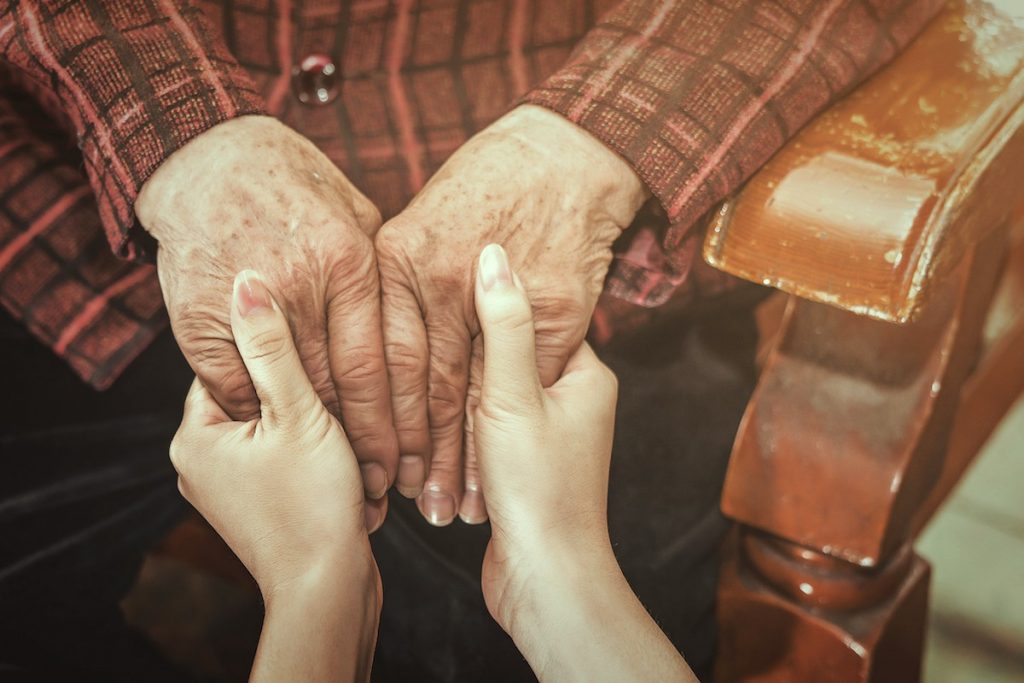
The care for the elderly has become more urgent as the coronavirus pandemic continues to rage around the world, noted a new Vatican document released this week.
“A serious rethinking is needed not only in relation to residences for the elderly but for the entire care system of the numerous elderly population,” said Archbishop Vincenzo Paglia, head of the Pontifical Academy for Life.
In a media briefing on Feb. 9, the archbishop said the pandemic has laid bare chronic, underlying problems around the world in the way older people are cared for.
The academy and the Dicastery for Integral Human Development launched this week a document titled “Old Age: Our Future. The Elderly After the Pandemic.”
The document underlines the urgency for a “rethinking” of how society should help the growing number of elderly people, especially during the pandemic.
During the media briefing, Archbishop Paglia noted that the pandemic “has primarily affected those who are old,” citing estimates that more than 2.3 million elderly people have died of the disease.
The Vatican document warned about the importance of not marginalizing the elderly who have so much to offer but have suffered the most throughout the global health crisis.- Newsletter -Subscribe to Spotlight, our daily newsletter.
Archbishop Paglia noted that with the document, the Vatican “intends to underline the urgency of a new attention to elderly people.”
The archbishop said the document “aims to help build a new future for our elderly,” adding that the responsibility of the Church is to “take on a prophetic vocation pointing to the dawn of a new time.”
Archbishop Paglia noted that “the level of civilization of an era is measured by the way we treat those who are weaker and more fragile.”
“The death and suffering of the oldest cannot fail to be a call to do better, to do differently, to do more,” he said.
“We owe it to our children, to those who are young and at the beginning of life,” added the archbishop.
Among the main points in the document are:
– A duty to create the best conditions for the elderly to live “at home with one’s family if possible and with lifelong friends,” and in one’s own neighborhood with the provision of basic services.
– Housing should be adapted to their changing needs, including removing architectural barriers and providing integrated, skilled home medical care.
– New technologies and advances in telemedicine and artificial intelligence should be used responsibly so the elderly can receive assistance in a home setting.
– Independent living, assisted living, co-housing and other initiatives should be inspired by an attitude of mutual assistance, making it possible for the elderly to be autonomous in a community, and, ideally, intergenerational setting.
– Nursing homes should be redeveloped into providing medical services directly in the homes of the elderly and families should get the support they need so they can care for a loved one at home.
– Dioceses, parishes and church communities should promote “a more caring pastoral relationship with the elderly,” seeing them as a “great resource,” especially in faith formation and as living witnesses of the faith.
The document when on to note that this vision is not an abstract utopian or naive pretense. “It can instead bring to life and nourish new and wiser public health policies and original proposals for a welfare system for the elderly” that is more effective and more humane, the note said.
“This requires an ethic of the public good and the principle of respect for the dignity of every individual” and it requires the help of everyone — the whole church, different religions, the world of culture, schools, volunteers, media companies and businesses — to support a “Copernican revolution” that makes it possible for the elderly to remain in the homes they know or in welcoming, loving environments.
Source: Licas Philippines
0 Comments